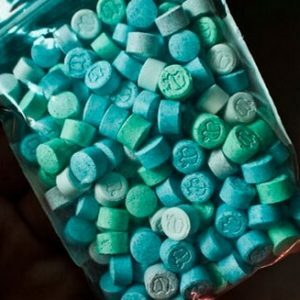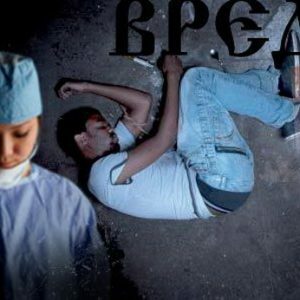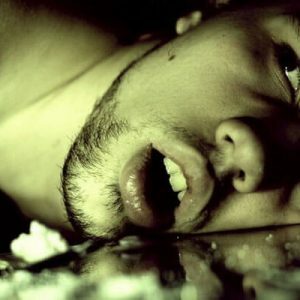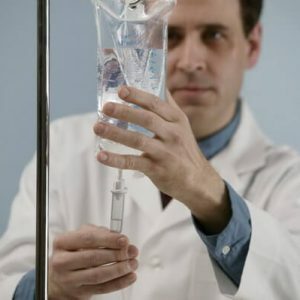Abuse of amphetamines

Amphetamines are chemical compounds, in the series of which there is both amphetamine itself and its derivatives - methamphetamine, cathinone, ephedrine, MDA, Ecstasy, DOB and others.All of them have a psychoactive effect with pronounced narcotic effects.Some of these substances have found application in medicine in the treatment of mental abnormalities.With prolonged use cause dependence.
Components of amphetamines have been known since ancient times.Ephedra was used in Chinese medicine.Kata leaves - used by African peoples as a restorative after severe diseases.
The year of discovery of amphetamine is 1887. A German scientist of Romanian origin L. Edelanu singled it out in the course of chemical experiments.The American biochemist G. Alles drew attention to the psychoactive effect of the compound.Amphetamine salts have been used in the medical practice of treating depression, Parkinson's disease, to reduce body weight.
Table of contents: How do amphetamines work, dosage forms, doses What are the symptoms of amphetamines in a person? Signs and symptoms of amphetamine overdose. Dependence on amphetamine. Dependence on amphetamine.. Amphetamines stimulating effect was used in the armies of Germany, Japan, USA.Especially during the Second World War.
The peak of popularity fell on the 60th, with the beginning of mass production of designer amphetamines.
The production of these psychoactive substances came to a mass level, it was then that physicians paid attention to the development of drug dependence on them.Subsequently, the production and consumption of these drugs has declined, replaced by others, but has not lost its relevance in our days, especially in European countries.
Please note: in the 1990s, Ecstasy became the most popular amphetamine stimulant, under the guise of which surrogates were often consumed, which became a popular tool at all kinds of youth gatherings.
How do amphetamines work, dosage forms, dosages
The psychotropic effect of this group of psychoactive substances is due to the fact that they cause the accumulation of a large number of catecholamines( transmitters of signals) in the synaptic clefts of nerve fibers( impulse transfer points).In particular - dopamine, serotonin and norepinephrine. This process is very complicated.
As a result, the person taking amphetamines develops:
- psychostimulating action;
- is a hallucinogenic effect;
- is an empathogenic manifestation.
This triad constitutes the main complex of narcotic expectations of the patient.
Addicts use amphetamines in the form of powder, tablets with logos, capsules, syrups.The solution is injected into the vein.From the crystalline form, smoking mixtures "ice" are prepared.Often they are taken orally( through the mouth) or using the effect of absorption through the nasal mucosa( intranasal route).
The dose of pure amphetamine is 5 mg to 20 mg.The action lasts about 4-6 hours, a maximum of 24 hours.
How does a person feel about amphetamines?
 The use of amphetamine by dependent people has a number of characteristics.The desire to experience the usual sensations makes you use the drug in a cyclical way.The first dose gives a strong, but a short-term effect.Usually not more than a few minutes.As soon as the sensations go away, the addict takes the next "portion".The need for new doses makes the patient repeat the procedure every hour( sometimes in 3-4 hours).The cycle lasts 2-3 days.After complete satiety, the patient begins to leave the cycle.The final period lasts about 10 hours.
The use of amphetamine by dependent people has a number of characteristics.The desire to experience the usual sensations makes you use the drug in a cyclical way.The first dose gives a strong, but a short-term effect.Usually not more than a few minutes.As soon as the sensations go away, the addict takes the next "portion".The need for new doses makes the patient repeat the procedure every hour( sometimes in 3-4 hours).The cycle lasts 2-3 days.After complete satiety, the patient begins to leave the cycle.The final period lasts about 10 hours.
Note : anesthesia ends in a long and deep sleep throughout the day, and sometimes more.
The amphetamine stimulant injected into the vein gives an effect in a few seconds.Other ways of taking drugs cause a narcotic effect in a few minutes. Ingestion requires higher doses.In the liver, the drug disintegrates and is excreted from the body by the kidneys for several days.
Against the background of the use of narcotic substances, the patient develops:
- aggravation of attention and concentration abilities;
- improved mood;
- memory improvement and acceleration of thought processes;
- the doubts and constraints go away, their place is taken by confidence and a sense of inner comfort;
- motion gain sharpness, speed and accuracy;
- speech becomes fast, distinct.
In this case, attention is drawn( against the background of the use of high doses) development of external anxiety, lack of need for sleep. Small tremor in limbs and body may develop.With individual sensitivity, there is sometimes panic and psychosis.Overdose phenomena can simulate a clinic of schizophrenic disorders.Some patients develop a stereotyped loop on repeated actions, which can be observed more than one hour.
Excessive stress of the sympathetic nervous system causes in amphetamine users:
- increased heart beat - tachycardia;
- blood pressure jumps, sometimes to dangerously high values;
- sharp increase in pupil size - mydriasis;
- increase in body temperature, while the patient is strongly shivering;
- drying of the mucous membranes of the mouth, nose, pharynx.
Signs and symptoms of amphetamine overdose
 The action of large doses represents an increased risk to the heart.The patient develops a marked palpitation, there is a spasm of the arteries. Against this background, the blood pressure sharply increases. If the process affects the coronary( intracardiac) vessels, angina pectoris may develop, and a disturbance in the supply of the heart muscle sometimes leads to myocardial infarction.
The action of large doses represents an increased risk to the heart.The patient develops a marked palpitation, there is a spasm of the arteries. Against this background, the blood pressure sharply increases. If the process affects the coronary( intracardiac) vessels, angina pectoris may develop, and a disturbance in the supply of the heart muscle sometimes leads to myocardial infarction.
The process of narrowing the arteries in the brain can cause ischemic stroke, hemorrhage.
Amphetamines, being in the blood in excessive amounts, often stimulate the development of metabolic acidosis( a condition in which poisons accumulate in the blood-non-volatile acids, ketone bodies, etc.).Often there is acute renal failure, a violation of blood coagulability.
Important: amphetamines have a direct neurotoxic effect, causing damage to brain cells.
Dependence on amphetamine
The systematic use of amphetamines is gradually forming the development of the mental type dependent and .With each new "portion" the desire to take a narcotic drug is becoming more acute. In most cases, the psychic type of thrust develops after 2-3 weeks of daily use of amphetamine stimulants.
Self-refusal( without treatment) causes an irresistible craving to return to the usual dose.This condition, if not provided to the patient, may last several weeks.Then the dependence gradually recedes.But the risk of relapse( the return of the desire for anesthesia) will persist for years.
Among the medical scientists, scientific debates are still held about the presence or absence of amphetamine physical dependence.Clearly, all the specialists came to the conclusion that patients with amphetamines who are taking amphetamines are developing withdrawal syndrome.It appears both in drug addicts who use drugs for a long time and in those who use them for a short period of time.
The withdrawal syndrome manifests itself:
- with increasing fatigue for no apparent reason;
- drowsiness during the day;
- depressed state;
- sensation of hunger( due to the compensatory response of the body to the restriction of nutrition during the use of amphetamines).
It has been proved that amphetamine stimulants, which have a hallucinatory effect, do not cause dependence.
Prolonged use of amphetamines leads to the fact that patients are much worse.They look dull, gray, exhausted.Skin is pale gray in color.Face with pointed features, hollow cheeks.
Drug destroys the immune system.As a result, frequent infectious diseases and relapse of occur in patients.On acute manifestations layered with chronic pathologies.Man gradually loses his physical and mental health.The hearing may decrease and the eyesight deteriorate.
Note : a large dose can cause a specific amphetamine psychosis.
Its feature is to keep a clear consciousness.Psychosis manifests excitability, a growing sense of anxiety and fear.The patient is tense, he has occasional attacks of illusory disorders and hallucinations.Especially often develop tactile disorders( delusional parasitosis).The patient feels crawling along the body of insects and other parasites.In this case, it is necessary to conduct a distinctive diagnosis with an acute phase of schizophrenia.
Treatment of dependence on amphetamine
 Treatment is necessary in case of drug poisoning( overdose) and, to get rid of addiction.
Treatment is necessary in case of drug poisoning( overdose) and, to get rid of addiction.
Intoxication is removed in toxicological or resuscitative departments of hospitals, preferably narcological, or psychiatric profiles of .If necessary, the patient must be fixed.This need arises in cases of restless behavior of the patient, with the possibility of causing harm to himself and others.Intensive therapy includes massive detoxification using isotonic solution, glucose( as solvents). Reosorbilakt has a detoxifying drug and action-exchange products.If detoxification is required with protection of the liver and heart, then the intravenous drip Reamberin is especially recommended.
Phenomena of mental excitement are removed by benzodiazepine tranquilizers( diazepam).With convulsive alertness, magnesium, barbiturates, propofol are used.
In more serious cases - with hallucinations, neuroleptics( droperidol, haloperidol and others) are used.
With severe hyperthermia( high temperature), the patient should be quickly cooled.To do this, use wet wraps, hot-water bottles and other containers with cold water, which obkladyvayut patient.
Blood pressure is normalized by the necessary medicines.When arrhythmia is selected the necessary antiarrhythmic complex.
The patient's condition with active detoxification and antipsychotic therapy is normalized very quickly.Sometimes in a few hours.
Removal of dependence on amphetamines is carried out in drug treatment clinics.
If necessary( taking large doses and prolonged anesthesia), patients are recommended detoxification.
 The drug is canceled at the same time.The development of a marked withdrawal syndrome is facilitated by tranquilizers and antipsychotics.
The drug is canceled at the same time.The development of a marked withdrawal syndrome is facilitated by tranquilizers and antipsychotics.
As with overdose, pathogenetic and symptomatic therapy is prescribed( recovery and normalization of the heart, brain function, liver function).
Note : The basis for the treatment of amphetamine dependence is psychotherapy.This type of care is carried out from the first day of the patient's admission to the clinic.
It is very important to achieve the patient's motivation for recovery.Not all people consider themselves sick .The task of explaining the essence of the problem is solved by psychiatrists in cooperation with psychologists.Convincing the patient that he has a disease, go to the second motivational stage - the patient's attitude to a healthy life.
Methods used for the psychotherapy of persons with abuse of amphetamines:
- suggestion in reality and in a hypnotic sleep.It is applied both individually and in a group;
- conviction during group sessions of therapy;
- treatment by stimulation of aesthetic senses( skillful application of the method allows to achieve very high results with the help of literature, music, painting).Patients at these sessions discover new meanings of life, set goals.
At the end of the treatment, it is very good if the doctor and the patient agree on the need for encoding.In case of treatment of abuse of amphetamines, the most suitable encoding is the Dovzhenko method.
An extract from the clinic is not a complete guarantee that the recovered person will not have a relapse( return of dependence).Therefore, to consolidate the obtained effect of treatment is best in the rehabilitation center.
Competent treatment allows you to achieve good remissions( periods of sobriety) and a positive prognosis.
Alexander Lotin, medical reviewer



